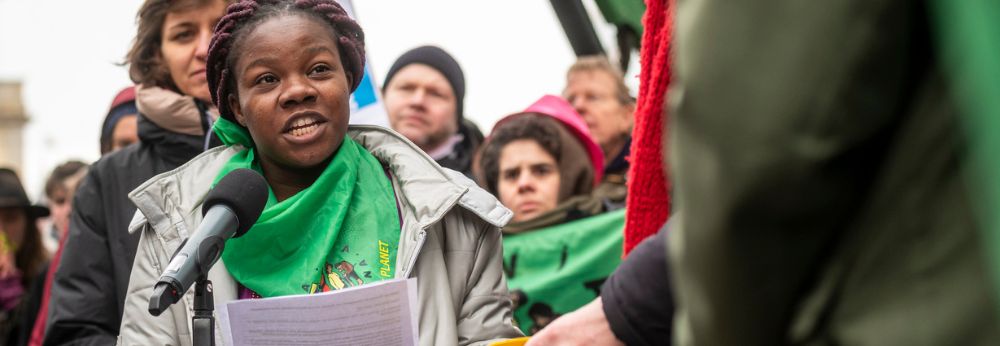“Only with the diversity inherent to peasant agriculture can the sustainable transformation of food
systems succeed” – Peasant Youth of La Via Campesina
A delegation of young peasant leaders from La Via Campesina, Chengeto Muzira (ZIMSOFF, Zimbabwe), Tyler Short (FFD, USA) and Inka Baumgart (AbL, Germany) attended the Global Forum for Food and Agriculture held in Berlin between 18-21 January 2023. On the 21st of January the young peasants delegation, as well as other members from LVC coming from Brazil, the Netherlands, Norway, Austria and Wales also joined a public demonstration (We’re Fed Up!) that drew attention to the farming and food crisis plaguing much of the world and the inability of governments to defend peasant and indigenous communities. The visiting delegation of La Via Campesina was hosted by Arbeitgemeinschaft bäuerliche Landwirtschaft (AbL), LVC’s German member organization.
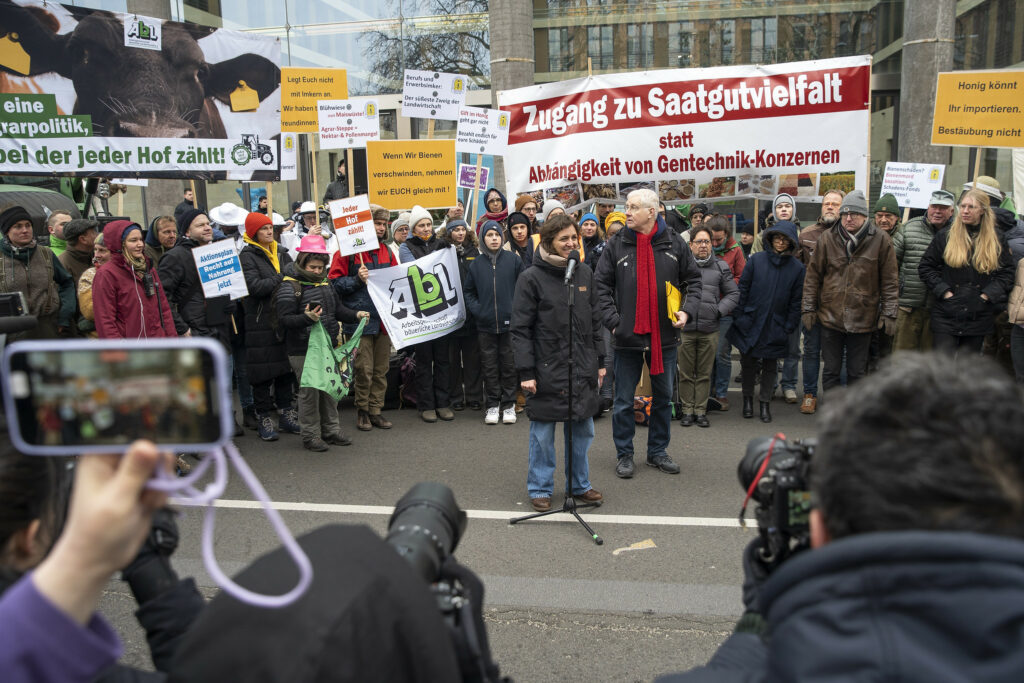
In a scathing critique, they denounced the Ministerial Delegations and their governments for doing “too little, too slowly” and giving “too many concessions to the agricultural industry and the profiteers of the existing industrial food system.”
They warned that no ambitious action taken means an increase of inequality and injustice. “Nothing demonstrates the extreme rise in inequality more dramatically than the 828 million chronically hungry people. At the same time, the profits of agri-food corporations continue to grow.”
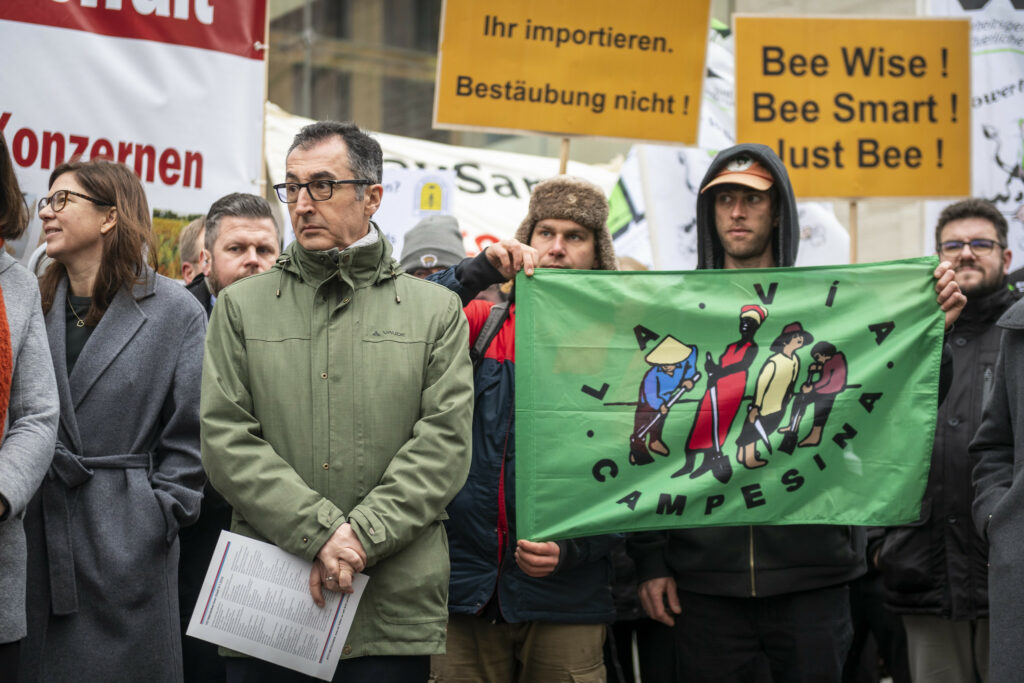
The delegation reminded the Forum that seeds are public commons and that for over 10,000 years, farmers everywhere had been selecting, exchanging, storing and selling seeds. They rued the attempts by Corporations, aided by friendly governments, in appropriating and privatizing peasant seeds and criminalizing peasant-seed systems. Seeds are central to ensuring a region’s food sovereignty, they noted. “Many farmers have lost their seed sovereignty and are now dependent on multinational seed companies, which determine which seeds with which characteristics are marketed. These developments are fatal and hamper the realization of the right to food and overcoming hunger. At the same time, this dependence leads to uniformity in the fields and thus threatens biodiversity.” they noted.
Chengeto Muzira of the Zimbabwean Small Holder Organic Farmers’ Forum, one of the young peasant leaders who attended the summit, said:
“Seed biopiracy occurs when rich people and corporations steal local seeds and commercialise them for profit. This theft is done by buying up local and national gene banks and all the research facilities associated with them. With access to local seeds, patents are developed that make the seeds less accessible to farmers, especially peasants and other small-scale farmers”.
Read Chengeto’s full speech here.
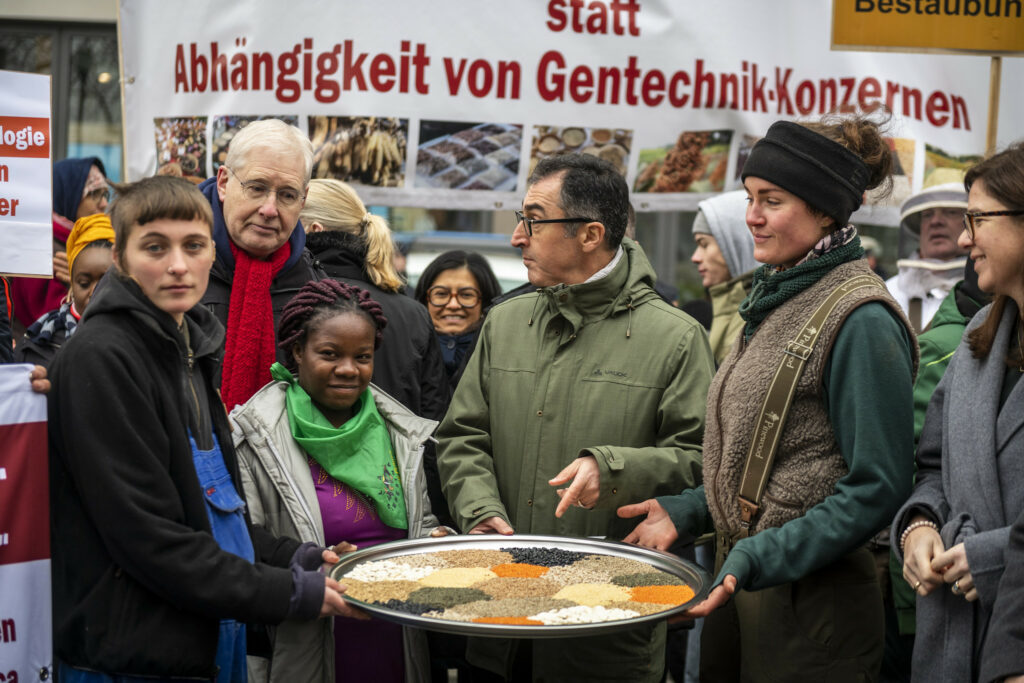
The delegation also warned that a powerful lobby comprising transnational corporations and technical and scientific associations is working to exempt new genetic engineering processes from regulation under EU genetic engineering law.
“This is despite the fact that even the first generation of genetic engineering has not contributed to the fight against hunger but has forced millions of farmers into dependence on agricultural corporations and debt. At the same time, production systems have been established based on genetically engineered pesticide-tolerant plants and place an extreme burden on biodiversity, ” the protesting youth said.
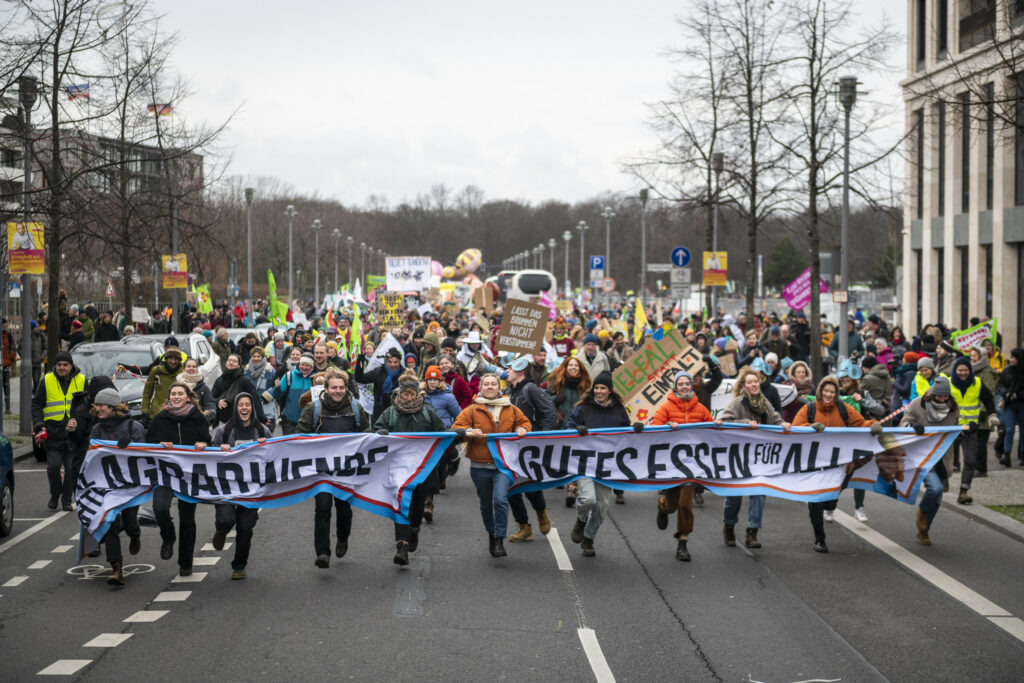
In the letter to the Ministers, La Via Campesina and allies have called upon the Ministers to develop global inclusive responses within the Committee on World Food Security (CFS) framework based on the right to food that addresses the worsening world food, climate and biodiversity crisis”.
They demanded strengthening peasant rights as provided for by the International Seed Treaty (ITPGRFA) and Peasants’ Rights Declaration (UNDROP) by reforming national and regional seed legislation and making UNDROP a central part of any policy processes. They also called upon the Forum to discontinue efforts to deregulate products of the new genomic techniques, as is currently being discussed in the EU and various countries.
Photo Credit: Wir haben es satt!/Meine Landwirtschaft/Flickr
THE PROTEST NOTE IS REPRODUCED BELOW

